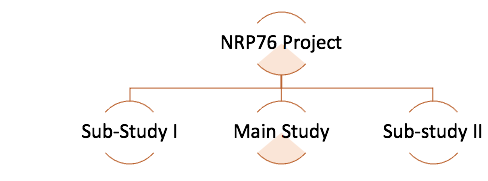Navigation auf uzh.ch
Navigation auf uzh.ch
Verdingender: a brief historical overview
Until 1981, children and adolescents in Switzerland were affected by coercive social measures and out-of-home placements (CSMP). At the time, Swiss local authorities were entitled to enforce welfare measures. They used such power to arbitrarily separate children from their parents in response to social norm violations such as single motherhood, migrant/gipsy origin, or extreme poverty (Leuenberger & Seglias, 2008). Although no exact number of children and adolescents affected by these measures is known, estimations point to tens of thousands of individuals (Federal Office of Justice, 2020). In the context of state and social recognition of this chapter of Swiss history, affected individuals have come forward with reports of extreme forms of child maltreatment: different types of abuse, neglect and forced labour were facilitated by these enforced welfare measures (Federal Office of Justice, 2020) in a time were child labour was common in the country and acceptable way to teach children about the value of hard work for the development of society. These children were known as Verdingkinder (relinquished children) (Leuenberger & Seglias, 2008).
The project: Differential ageing trajectories in hig-risk individuals with past experiences of early adversity
The Department of Psychology of the University of Zürich conducted a group of studies in the context of the National Research Project 76 (NRP76) "Welfare and Coercion – Past, present and future". The goal was to examine the long-term consequences of early-life adversity in a high-risk sample of older individuals institutionalized or otherwise administratively placed in care in their childhood or adolescence. Using different methodological approaches and considering multiple actors, the results point to positive and negative long-term outcomes for people who experienced adversities in childhood. Additionally, it highlights protective factors that promote resilience and could contribute to a more appropriate approach for this population.
For more information on the NRP76 and the project: nfp76

The project comprised three studies:
Main Study
The study examined outcomes and trajectories of psychological and physical health over time, as well as related vulnerability and resilience factors in a Swiss cohort of persons aged 50 years and older who were affected by CSMP and an age-matched control sample. A questionnaire survey assessed 257 participants (n = 132 risk group and n = 125 control group) in the following manner: Two assessments were conducted at the beginning of the study, followed by a 21-month wait period, during which the participants were contacted every three months for a short telephone survey. After that, two final assessments were conducted for the follow-up. Results showed that the risk sample presented more internalizing mental disorders and experienced more stressful situations during their life compared to the control group. However, 30% of the sample did not present any type of mental disorder (compared to 42% of the control group). The risk group also presented less favourable coping and emotion regulation strategies. These results support the idea of long-term negative outcomes for people who experience early life adversities.
For more details on the results of the main study, please consult the following publications:
Sub-study I
The study examined the coping strategies and resilience of older people in Ireland who experienced (institutional) child abuse and neglect. A questionnaire survey of 532 people assessed aversive childhood experiences, stress, resilience, health and well-being. In addition, interviews were conducted with victims of institutional (N=17) and intra-familial (N=12) maltreatment to gather detailed information about their childhood and present experiences. The results showed that older people who experienced adversities in childhood have an increased risk of mental illness and poor well-being (e.g., symptoms of posttraumatic stress disorder, depression/anxiety, insomnia). However, factors associated with resilience were also identified: Strength of character, perspective taking, motivation to prosocial behaviours, high levels of education and use of formal services to promote education. These findings suggest that resilience is not only a personality trait but also a learnable skill fostered by the environment.
For more details on the results of the main study, please consult the following publications:
Sub-study II
In an effort to better understand the impact of the CSMP, 12 caregivers were interviewed about their perceptions and experiences in the care system. As a result, relevant intrapersonal, interpersonal, and external factors were identified: Intrapersonal factors that could influence the care and development of the children were the children's characteristics and behaviours (e.g., gender, age) and their coping strategies (e.g., creativity, imagination and acting out). Interpersonal factors that could hinder the children's development were the caregivers' negative attitudes and lack of emotional and social support. Finally, external factors such as lack of resources in the care system, poor working conditions for the caregivers, indifference on the part of the authorities, and stigmatization and discrimination against the children in care might have hindered the resilient development of the children. On the other hand, potential protective factors were also identified, including external support and the provision of resources, caregivers' micro-resistance, social recognition through public debate and subsequent improvements in the care system.
The results of these studies emphasize different aspects to consider regarding the relationship between childhood adversities and older age: